Cornwall Wave Hub uses more electricity than it produces
- Published
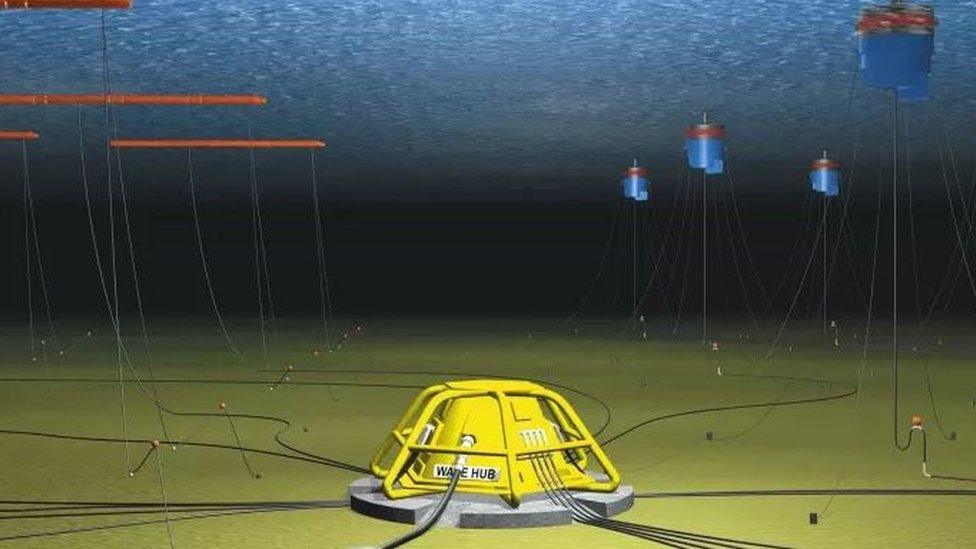
Energy producers can connect devices to the Wave Hub, but none have yet
A £42m wave energy facility has used more electricity than it has produced since it was launched eight years ago.
Wave Hub, an undersea "socket" located off Hayle in Cornwall, is meant to transfer electricity from wave energy producers to the National Grid.
So far no firms have used the facility for that purpose and it has been dubbed an "energy sinkhole".
But owner Cornwall Council said Wave Hub was part of a local marine sector that continues to "grow and thrive".
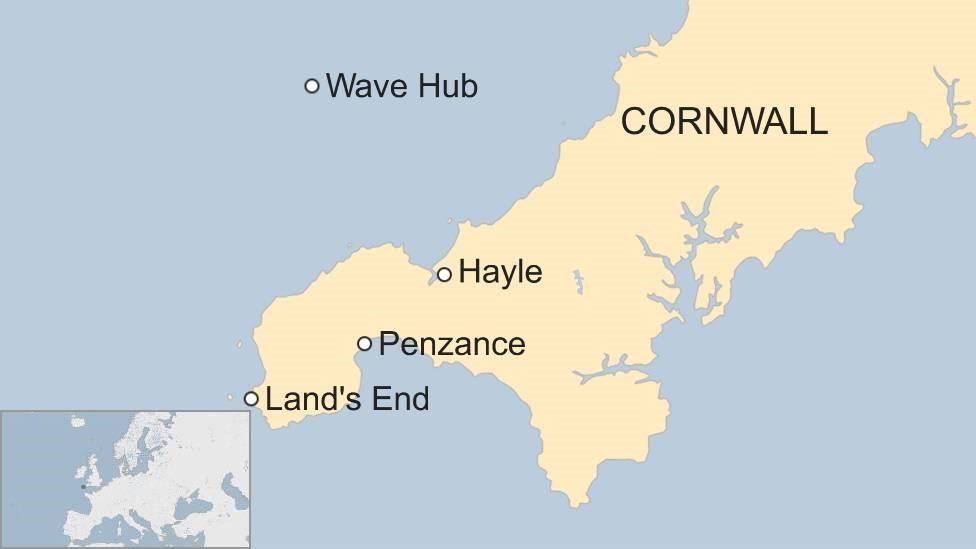
Wave Hub is an undersea "socket" located off Hayle in Cornwall
A 10-mile (16km) undersea cable linking Wave Hub to the shore is always live, but no power has been transferred through it.
Wave Hub's managing director Claire Gibson said keeping the cable live was "good practice" and helped maintenance, but she declined to comment on how much it cost to keep the power on.
Seatricity had a device anchored at Wave Hub in the summers of 2015 and 2016, but it was designed to send high pressure water back to shore which would then generate power on land.

Only one device has been hosted at Wave Hub and that was not designed to send back electricity
Seatricity's former managing director Andy Bristow said "expensive mistakes" at Wave Hub had created a "white elephant".
He said: "We believe there is a future for wave energy but Wave Hub means the public's perception is that wave energy is a costly mistake."
He described the project as an "energy sinkhole" and said money spent on Wave Hub would have been better used to help small companies develop their ideas.
"For a fraction of the cost we could have had a credible wave energy business but unfortunately the whole industry has been tainted by expensive public funding," he said.
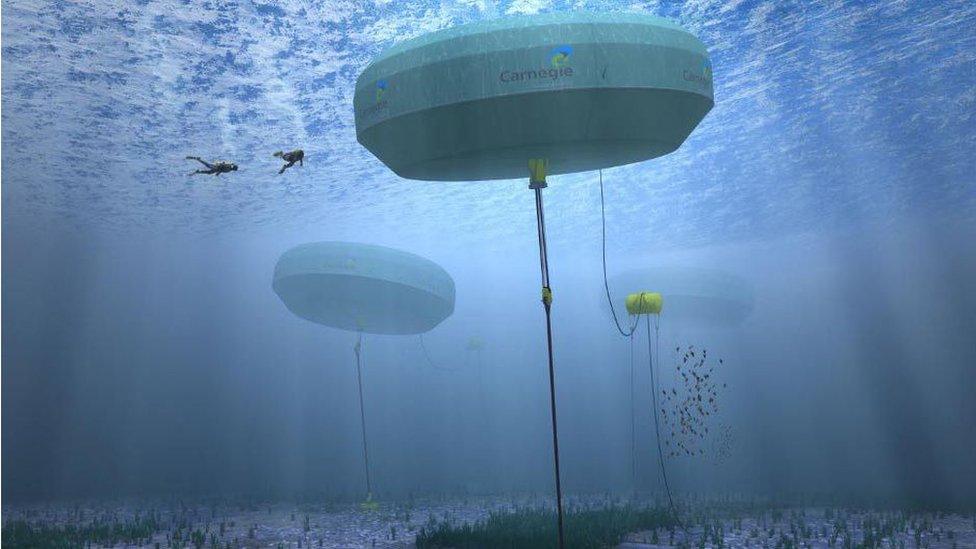
Wave Hub said it was "disappointed" Carnegie decided to test its device in Australia rather than Cornwall
Wave Hub, forecast to be a "world class facility", external, was financed by the South West of England Regional Development Agency (£12.5m), the European Regional Development Fund Convergence Programme (£20m) and the UK Government (£9.5m).
It was claimed it could generate £76m over 25 years for the regional economy.
Ownership was transferred to Cornwall Council a year ago and the authority said it "received around £14m to cover ongoing operations, support for the marine renewables sector and decommissioning costs".
A council spokesperson said: "Although the wave energy sector has not developed as quickly as originally hoped, the Wave Hub Ltd Team continue to explore alternative technologies.
"Cornwall is home to a number of world leading marine technology and logistics companies which continue to grow and thrive, benefitting from the growth of the marine renewables sector in the UK and beyond."
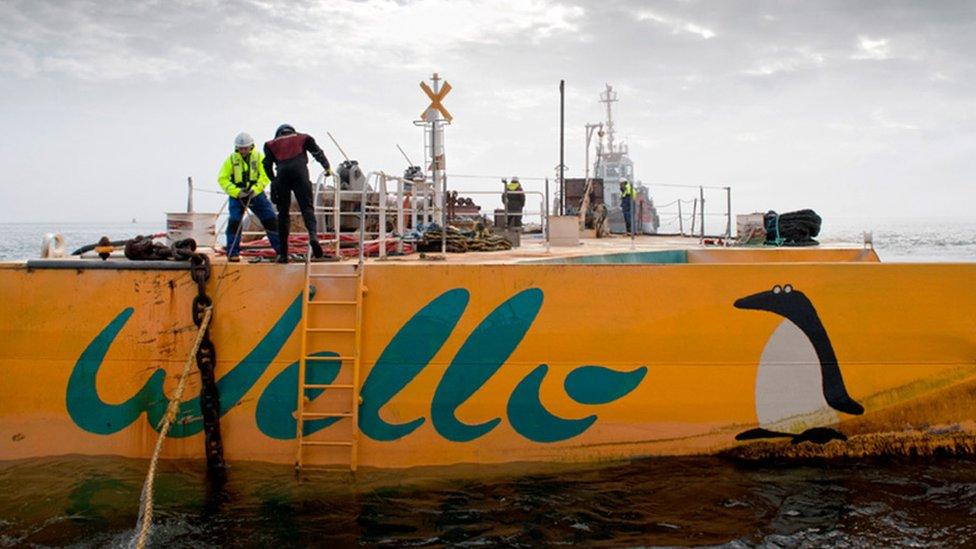
Fortum's Wello device is among a series that never made it to Wave Hub
Wave Hub received more than £1m from the government in 2016/17, external according to its latest accounts.
Australian firm Carnegie was given £9.6m from the European Regional Development Fund, external to support the development of commercial wave energy, but it is the latest company to decide against using Wave Hub.
Ocean Prospect, Ocean Power Technologies, Fred Olsen, Ocean Energy and Fortum all went elsewhere after Wave Hub said they were coming onboard.
Hayle councillor John Pollard said the facility was designed as a test bed for devices and "not to be an electricity producer".
Last week, Wave Hub said the wave energy business was "unfortunately taking longer to develop" than anticipated.
Related topics
- Published28 March 2018
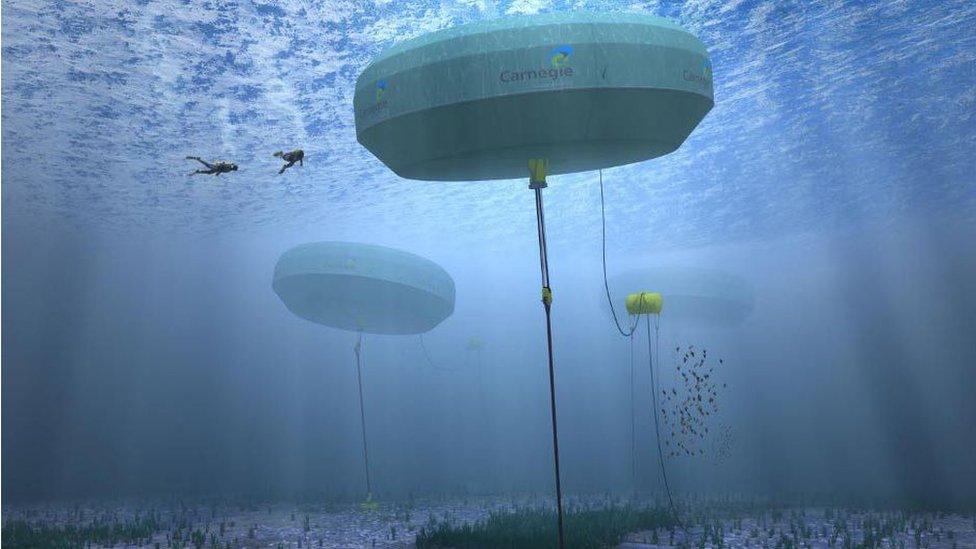
- Published19 June 2014
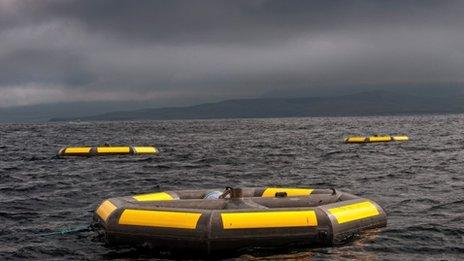
- Published20 February 2013
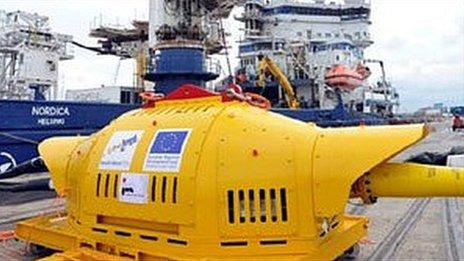
- Published21 February 2012
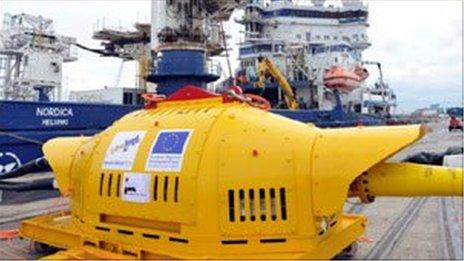
- Published8 February 2012
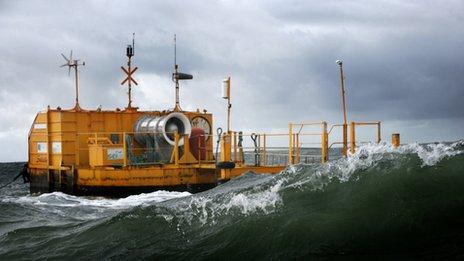
- Published23 January 2012
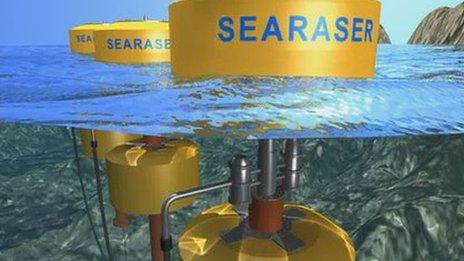
- Published20 December 2011
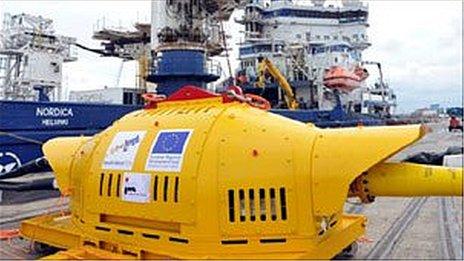
- Published3 September 2010